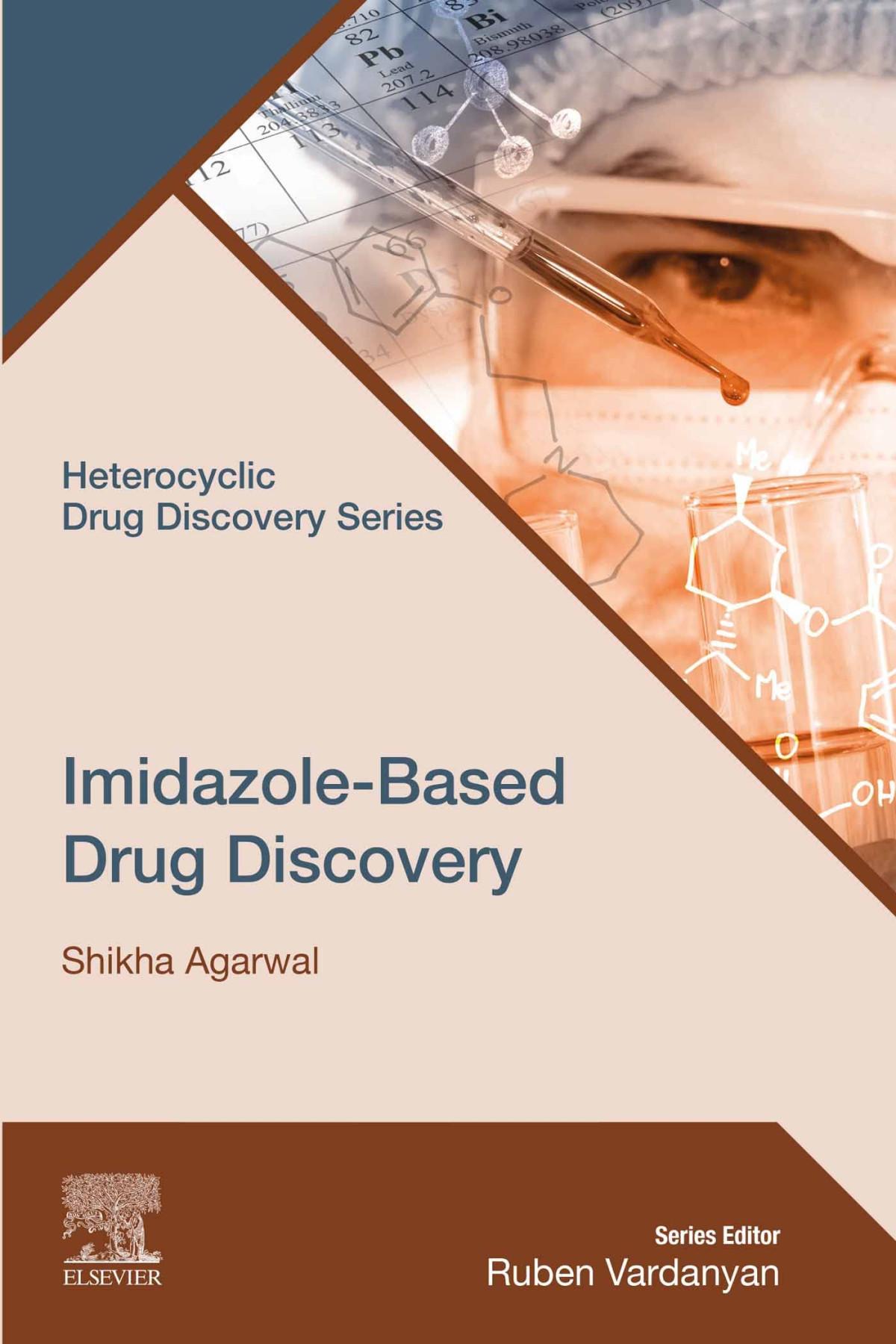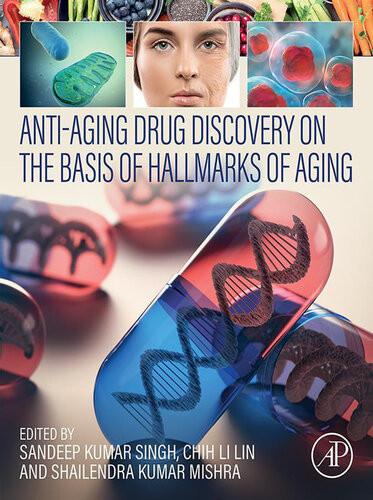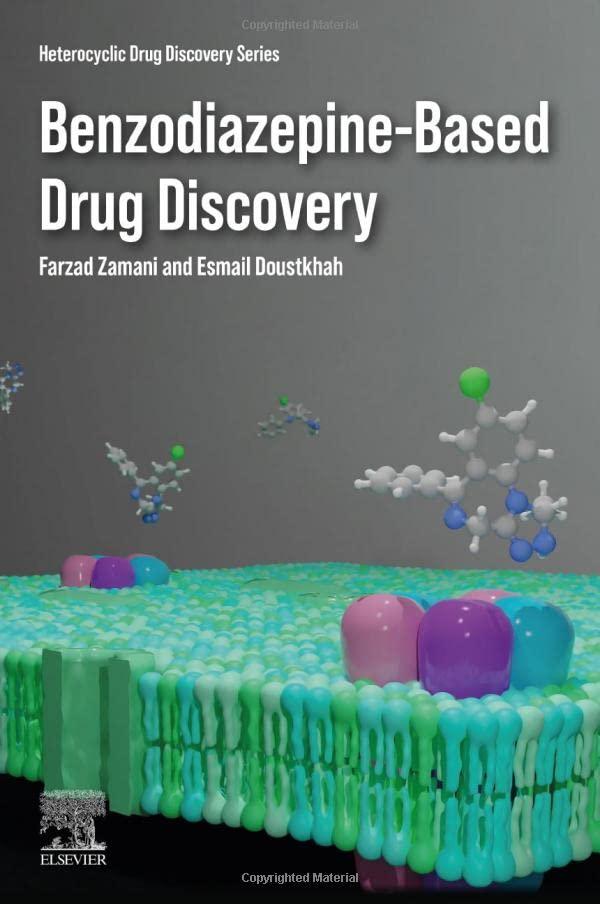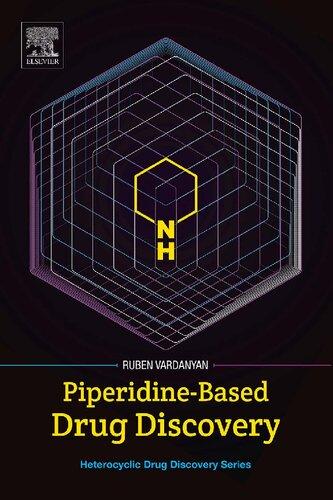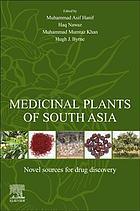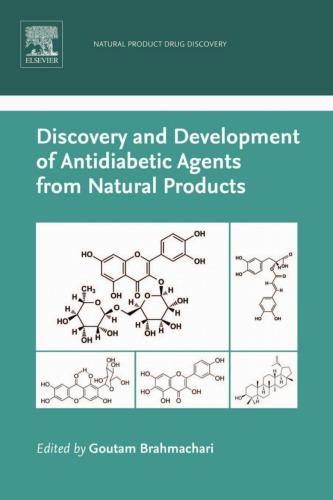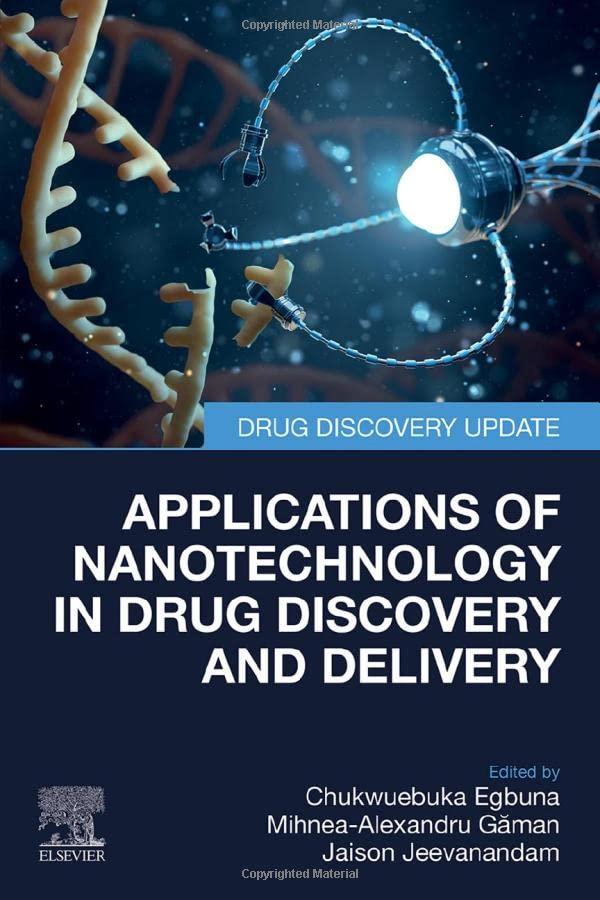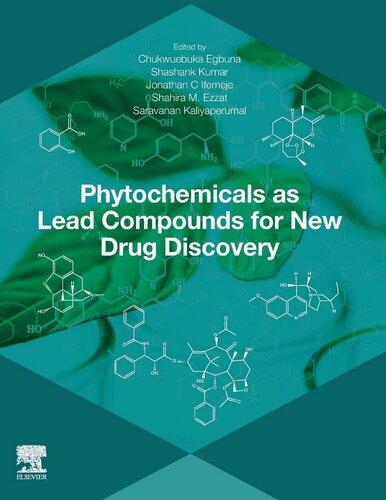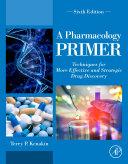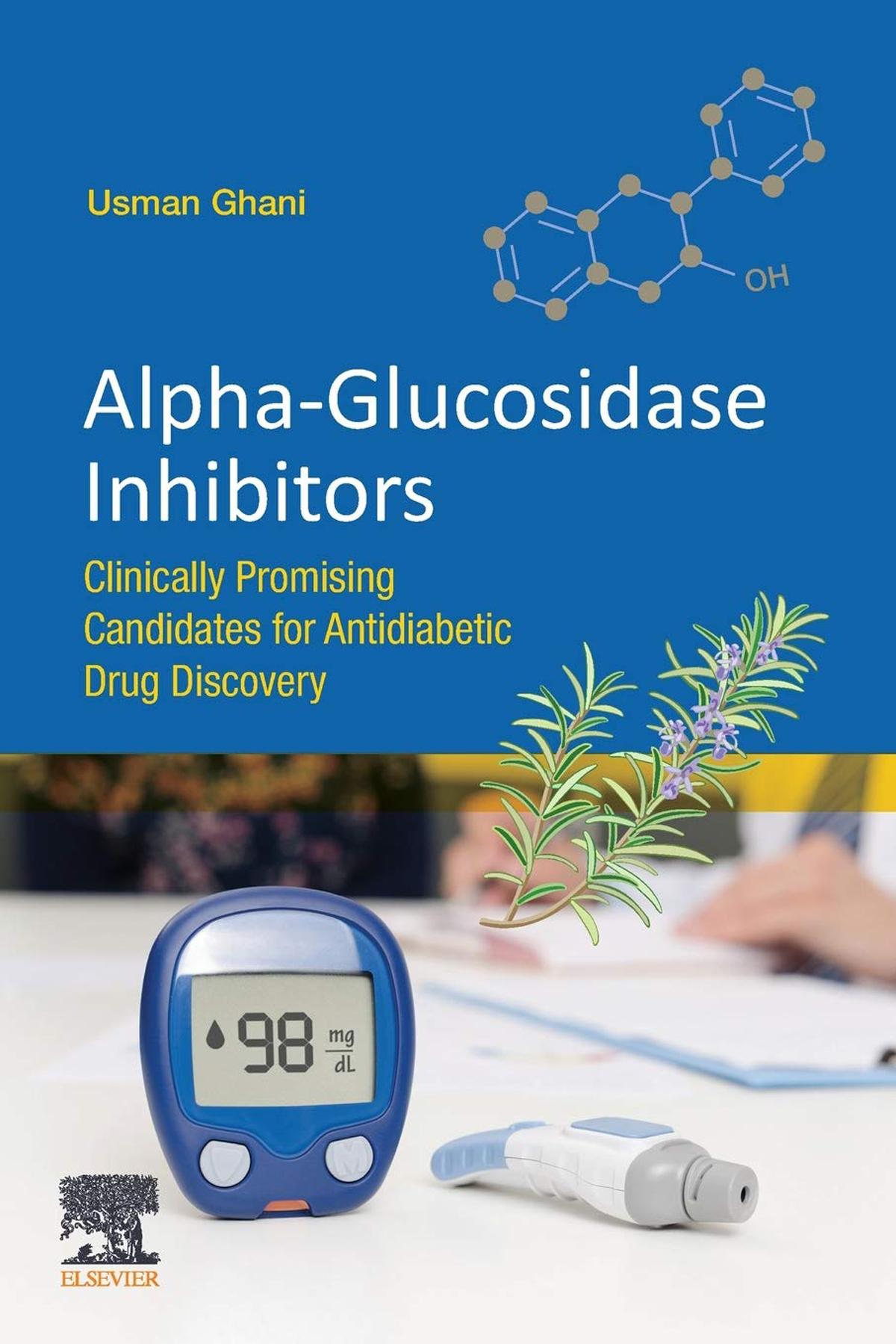ALPHA -GLUCOSIDASE INHIBITORS
ClinicallyPromisingCandidates forAntidiabeticDrugDiscovery
USMANGHANI
AssociateProfessorofBiochemistry, ClinicalBiochemistryUnit,DepartmentofPathology, CollegeofMedicine,KingSaudUniversity, Riyadh,SaudiArabia
Elsevier
Radarweg29,POBox211,1000AEAmsterdam,Netherlands
TheBoulevard,LangfordLane,Kidlington,OxfordOX51GB,UnitedKingdom 50HampshireStreet,5thFloor,Cambridge,MA02139,UnitedStates
Copyright©2020ElsevierLtd.Allrightsreserved.
Nopartofthispublicationmaybereproducedortransmittedinanyformorbyanymeans, electronicormechanical,includingphotocopying,recording,oranyinformationstorageand retrievalsystem,withoutpermissioninwritingfromthepublisher.Detailsonhowtoseek permission,furtherinformationaboutthePublisher’spermissionspoliciesandour arrangementswithorganizationssuchastheCopyrightClearanceCenterandtheCopyright LicensingAgency,canbefoundatourwebsite: www.elsevier.com/permissions
Thisbookandtheindividualcontributionscontainedinitareprotectedundercopyrightbythe Publisher(otherthanasmaybenotedherein).
Notices
Knowledgeandbestpracticeinthisfieldareconstantlychanging.Asnewresearchand experiencebroadenourunderstanding,changesinresearchmethods,professionalpractices,or medicaltreatmentmaybecomenecessary.
Practitionersandresearchersmustalwaysrelyontheirownexperienceandknowledgein evaluatingandusinganyinformation,methods,compounds,orexperimentsdescribedherein. Inusingsuchinformationormethodstheyshouldbemindfuloftheirownsafetyandthesafety ofothers,includingpartiesforwhomtheyhaveaprofessionalresponsibility.
Tothefullestextentofthelaw,neitherthePublishernortheauthors,contributors,oreditors, assumeanyliabilityforanyinjuryand/ordamagetopersonsorpropertyasamatterofproducts liability,negligenceorotherwise,orfromanyuseoroperationofanymethods,products, instructions,orideascontainedinthematerialherein.
BritishLibraryCataloguing-in-PublicationData
AcataloguerecordforthisbookisavailablefromtheBritishLibrary LibraryofCongressCataloging-in-PublicationData
AcatalogrecordforthisbookisavailablefromtheLibraryofCongress ISBN:978-0-08-102779-0
ForInformationonallElsevierpublications visitourwebsiteat https://www.elsevier.com/books-and-journals
Publisher: SusanDennis
AcquisitionEditor: EmilyM.McCloskey
EditorialProjectManager: KelseyConnors
ProductionProjectManager: VijayarajPurushothaman
CoverDesigner: ChristianBilbow
TypesetbyMPSLimited,Chennai,India
QuotefromtheQuran
AnditisWeWhoconstructedtheUniversewithmight, andverilyitisWeWhoareexpandingit.
(TheQuran:Chapter51,Verse47)
Tomybelovedparents Dr.IbrahimHaroonandMrs.ZubedaIbrahim whoaremyperpetualprovenanceof love,care,prayers,andnurturingof endeavorsthatdefinemylife.
Preface xiii Acknowledgmentsxvii
1.Introduction,rationaleandthecurrentclinicalstatusoforal α-glucosidaseinhibitors1
1.1 Introduction1
1.2 Diabetesmellitusandtheantidiabeticdrugs4
1.3 α-Glucosidaseinhibitors pastandpresent6
1.4 Rationale10 References13
2.Naturalandsyntheticsugarmimics17
2.1 Introduction17
2.2 Iminosugars18
2.3 Aminosugars44
2.4 Thiosugars46
2.5 Carbasugars53 References54
3.Polyphenols61
3.1 Chalcones61
3.2 Xanthones69
3.3 Flavonoidsandotherpolyphenols74 References94
4.Terpenoidsandsteroids101
4.1 Terpenoids101 4.2 Steroidderivatives112 References114
5.Azolesandrelatedderivatives119
5.1 Thiadiazoles,oxadiazoles,andtriazoles121
5.2 Otherrelatedderivatives125 References134
6.1 Cyclitols137
6.2 Polycyclitols139
6.3 Aminocyclitols140
6.4 Conduritols141
6.5 Inositols141
6.6 Miscellaneousderivatives142 References159
7.Computationalandstructuralbiologyof α-glucosidase-inhibitor complexes:cluestodrugoptimizationanddevelopment163
7.1 CrystalstructureofhumanMGAM-Cincomplexwithacarbose163
7.2 CrystalstructuresofhumanMGAM-Nincomplexwithacarbose, miglitol,andsalacinol169
7.3 ComparisonoftheMGAM-N-inhibitorcomplexes172
7.4 ThehumanMGAM-N-salacinolderivativecomplexes175
7.5 Comparisonofthecrystalstructuresofacarboseincomplex withMGAM-C,MGAM-N,andSI-N179
7.6 ImportantstructuralandfunctionalcluestohumanMGAM-Ninhibition180
7.7 ThehumanMAGAM-N-casuarinecomplex181
7.8 Crystalstructuresoffreeisomaltaseandincomplexwithmaltose184
7.9 Insightsintothe α-glucosidasemechanismofinhibition188
7.10 Computationalsimulationsof α-glucosidase-inhibitorinteractions190 References203
Appendix:Acomprehensivelistofpromising α-glucosidaseinhibitorswiththeactivity datadiscussedinthebook207 Index 215
Abouttheauthor
Dr.UsmanGhaniisabiochemistwitheducationandtraining fromtheUniversityofKarachi,PakistanandUniversity ofAlberta,Canada.Presently,heisAssociateProfessorof BiochemistryatClinicalBiochemistryUnit,Departmentof Pathology,CollegeofMedicine,KingSaudUniversity,Saudi Arabia.Hisresearchinterestsincludeenzymology,cellular processes,andendothelialfunctionandrepairindisease.
Dr.Ghani’scurrentresearchalsoinvolvesscreeningandidentificationofclinicallyimportantenzymeinhibitorsandstudies ontheirmechanismofinhibition.Histeamhasidentifieda numberofsyntheticandnaturalinhibitorsof α-glucosidase andotherenzymesthatmaybecomepromisingcandidatesfor developmentintodrugsfortreatmentofdiabetesmellitusand otherdiseases.Dr.Ghanihasbeenawardednumerousresearch grants,andpublisheshisresearchworkinhighimpactjournals ofinternationalrepute.
Preface
Diabetesmellitusisagrowingglobalprobleminbothclinical andeconomicterms.Thediseasehasbeenalarminglyushering clinicians,healthcareauthorities,andscientistsintofinding newavenuestocurbitsdevastatingimpactonpatientsand healthcaresystems.Consequently,thefieldofantidiabetic drugdiscoveryhasflourisheddramaticallyinrecentyearswitnessingdevelopmentofpromisingdrugswithbroadspectraof modesofaction.However,treatmentofdiabetesmellitusby oral α-glucosidaseinhibitorsisstillconfinedtoacarbose,miglitol,andvoglibose.Thedrugdevelopmentofantidiabetic α-glucosidaseinhibitorsisessentiallyathaltsinceacarbose, miglitolandvoglibosewerelaunchedthreedecadesago. Healthcareauthoritiesandpharmaceuticalcompaniesinmany countriesarephasingthemoutpartlybecauseoftheirefficacy problems,unwantedgastrointestinalsideeffects,lackofmultiplemodesofaction,andlackofpromisingnettherapeutic effectsincludingimprovementinqualityoflife.
Thisdoesnotmeanthat α-glucosidaseinhibitordiscovery hasstopped;thescientificliteraturehasbeenwitnessingthousandsofcompoundsofnaturalandsyntheticoriginsexhibiting promisingantihyperglycemicand α-glucosidaseinhibitory activities.Therefore,thereisamplesupplyofnewcompounds generatingaplethoraof α-glucosidaseinhibitorssimplypiling upinthehaystackofpublicationsandreportsthatusuallydo notundergofurtherstudiesinvolvingleadoptimizationand development.Realizingthegapsandvacuuminantidiabetic α-glucosidaseinhibitordrugdevelopment,thisbookaddresses theconcernbyfinding “needles” inthatevergrowinghaystackofcompoundsbyidentifyingpromising α-glucosidase inhibitorsandpresentingthemtothedrugdevelopment
communitytocomeforwardandfurthergaugetheirpotential candidacyforleadoptimization,preclinicalorevenclinical trials.Thebookwillserveasavaluabletoolforbiochemists, syntheticandmedicinalchemists,enzymologists,pharmacologists,structuralandcomputationalbiologists,andpharmaceuticalcompanieswhohaveinterestorwouldliketodirecttheir interesttowarddevelopingnew α-glucosidaseinhibitorsas antidiabeticdrugs.
Forthispurpose,thegroundworkforidentifyingpromising inhibitorsisalreadylaidinthepresentworksothatthetarget audiencedoesnothavetogothroughthattediousprocessof selectingleadinhibitors.New,saferandefficacious α-glucosidaseinhibitorsmaybejustaroundthecorner,ifreexplored.Thisworkidentifies390promising α-glucosidase inhibitorsofnaturalandsyntheticoriginsthatmayqualifyfor antidiabeticdrugcandidacybasedontheirenzymekinetic data,potencyofinhibition,abilitytoreducebloodglucose levels invivo,andcomputationalandstructuralbiology.
Thebookiscomposedofsevenchaptersthatdiscussawide rangeof α-glucosidaseinhibitorsofdiversechemistryencompassingsugarmimics,polyphenols,terpenoidsandsteroids, azolesandcyclitols.Italsoaddressesthegeneralproblemsassociatedwithdrugdevelopmentwithspecialfocusonrelevant backgroundandfactorswhicharepotentiallyresponsiblefor challengesinthe α-glucosidasedrugdevelopment.Thebook discussesacarbose,miglitolandvogliboseagainstabroaderperspectiveofcurrentantidiabeticdrugs,andidentifiessupporting andcontrastingavenuesthatprovideinsightsintothefutureof α-glucosidaseinhibitordrugdiscovery.
Sugarmimicsareamajorclassof α-glucosidaseinhibitors thatincludeiminosugars,thiosugars,aminosugars,andcarbasugars.Previousresearchonsugarmimicshasledtothedevelopmentofacarbose,miglitol,andvogliboseasantidiabetic drugs.Theystillbearpotentialfornewantidiabeticdrug
developmentsincemanynewandpromisingsugarmimicking α-glucosidaseinhibitorshavebeendiscoveredtodateincludingpolyhydroxylatedpyrrolidines,pyrrolizidines,quinolizidines,indolizidines,andnojirimycinderivatives.
Recently,thescientificliteraturehaswitnessedasignificant surgeinreportsonantidiabeticpolyphenolswithantihyperglycemicand α-glucosidaseinhibitoryactivities.Polyphenols,isolatedfromtheplantsofmedicinalvalue,areactiveagainsta numberofclinicaltargetsincludingdiabetesmellitus.Plants usedfortreatmentofdiabetesintraditionalmedicinecontain potentpolyphenol α-glucosidaseinhibitorssuchasxanthones, chalconesandflavonoidswithabilitytolowerbloodglucose levelsandstimulateinsulinsecretion invivo.
Naturalandsyntheticterpenoidsandsteroidsaregaining interestduetotheirantidiabeticeffectssincetheyregulateglucosemetabolismandinhibit α-glucosidase.Synthetic approachesinvolvingvariouscombinationsofchemicalmoietiesincorporatedintotheterpenoidstructurehaveyielded lupine,oleanane,ursane,oleanolicacid,andursolicacidderivativeswithpromising α-glucosidaseinhibitoryactivityand invivo antihyperglycemiceffects.Thebookalsohighlights azoleandcyclitol α-glucosidaseinhibitorsthatincludethiadiazole,oxadiazole,triazole,oxindole,polycyclitol,aminocyclitol, conduritol,andinositolderivatives.
Lastly,aspecialchapterhasbeendedicatedtocomputationalandstructuralbiologyof α-glucosidaseinhibitorsthat aimstoexplorestructuralandfunctionalcluestodrugoptimizationanddevelopment.Italsoprovidesinsightsintothe mechanismof α-glucosidaseinhibitionbasedonx-raycrystal structuresofenzyme-inhibitorcomplexesandcomputational simulations.Theseapproacheswillprovidenewavenuesfor drugdevelopmentinvolvingdesigninganddevelopingleads withbetterefficacies.
Ihopethisworkwillbeofgreathelptorelevantaudiences, especiallythedrugdiscoverycommunityeitherinacademia orindustrywhowouldliketotakedrugdevelopmentof α-glucosidaseinhibitorstoadvancedlevels. UsmanGhani
Acknowledgments
IamdeeplygratefultotheAlmightyGodwhogavemeinspirationandcouragetoconceivetheimportanceofwritingthis bookandaccomplishitsuccessfully.
Mydeepestgratitudetoallmyfamilymemberswhoare mysourceforloveandinspiration.Iamthankfultomywife Yasmeenforhermotivationandsupportthatkeptmeresolute inthewritingprocess.
IamobligedtothankmysonsAbdurRaafay(inA2level) andAbdulHadi(ingrade9)whotookkeeninterestindrawingsomeofthechemicalstructuresoftheinhibitorsdiscussed inthebook.
OfcourseIcannotforgettomentionmy5-yearold daughterAaminahwhoseinquisitivecompanyIusedtoenjoy whilewritingthemanuscript.
Thankstomycolleaguesatourunitanddepartmentfor theirgoodwishes.
ThankstoKelseyConnors,theEditorialProjectManager atElsevier,Boston,MA,UnitedStates,forherexcellentcoordination,follow-up,andpatiencethroughouttheproject.
Thankstoallauthorsandpublishersforpermissionto reproducesomefiguresforthebook.
Introduction,rationale andthecurrentclinicalstatus oforal α-glucosidaseinhibitors
Contents
1.1 Introduction1
1.2 Diabetesmellitusandtheantidiabeticdrugs4
1.3 α-Glucosidaseinhibitors pastandpresent6
1.4 Rationale10 References13
1.1Introduction
Reducingmortalityandimprovingqualityoflifeisone ofthecrucialaimsoftherapeuticagents.Continuingresearch inthefieldofdrugdiscoveryhasbeenattractingtheattention ofresearchersfocusingondevelopmentofdrugswithsafer andbetterefficacyprofilessincethesetwotargetsarecompulsivelyexploredaspartofthedrugoptimizationprocess. However,needfordrugswithsafertreatmentoptionsand betterefficacyhasalwaysbeenchallengingtothedrugdiscoverycommunity,whichisgenerallyaddressedbyalluringtemptationofscreeningtherichandstillunexploredmolecular diversityofcandidatecompoundsofnaturalandsynthetic origins.Despiteallthesevaluableefforts,thereexistsadownturninthedrugscreeningprocess.Theseeffortshavebeen generatingnomorethanaplethoraofactivecompoundspiled upandforgottenintheetherwithoutbeinggivenampleconsiderationforfurtherdevelopmentintotherapeuticcandidacy.
https://doi.org/10.1016/B978-0-08-102779-0.00001-0
Another random document with no related content on Scribd:
“Very much, and she is a lovely girl. Well, dear daughter, so long as you are still casting about in your mind for a proper person to fall in love with I do not think we may have any uneasiness about the state of your heart.”
“Of course I have an ideal,” Lucie continued the subject. “Sometimes I am very certain he is an American; again I tell myself I could only marry a Frenchman, a soldier of France, of course. I do so adore my France, and I might not like the United States. It is very hard to decide,” she sighed.
After a silence she spoke again. “Annette was not really in love with Gaspard, though she loved him very much after they were married. I’d love to see her and the baby.”
“Now that the war is over you may have the chance of going again to Coin-du-Pres. I should like to go there myself to thank them in person for their goodness to you, and to see our good neighbors again. I suppose for the present Victor will stay there, and in course of time he may marry Annette. It would be an excellent arrangement.”
“Oh, mamma, do you think so?”
“Certainly; an admirable arrangement.”
“They are cousins.”
“Not very nearly related, not too near.”
Lucie dropped the work she was engaged upon and sat for a long time gazing into the fire.
Her meditations were broken in upon by the sound of voices outside. She sprang to her feet. “Mother,” she breathed, “if it should be!”
Madame Du Bois arose and stood shaking nervously. “I am still easily unstrung,” she murmured weakly. “Go and see who it is, Lucie.”
Pom Pom pricked up his ears and growled, then whined to be let out. Lucie went to the door. Two men stood there; one was Jean, easily enough recognized, the second she could not at once identify.
But presently she gave a wild cry. “It is! It is! Mother, come quickly; it is papa!”
And so it was, very thin and haggard, rather weakly trembling, but unharmed. For a while there were more tears than smiles, but they were tears of joy.
Upon the scarred and tortured land descended the spirit of Christmas. In spite of countless crosses, stretching mile after mile across the country, in spite of deserted firesides, of blackened ruins, of sickening memories and mourning hearts, there was peace. The children of France gave reverent thanks and rejoiced that their beloved land, torn, despoiled, devastated though it was, still remained their own land.
“In her children lie her hopes,” said the old curé, stopping to speak to Captain Du Bois. “The flower of our country has been cut down, but the roots are there and from them will spring up a new race of men. There is much to do, my dear Marcel, but it will be accomplished in time. It may be years before we see the land restored; it may not be in my day, but in yours. Oh, yes, I have faith to believe it will not be many years before France will be as radiantly lovely as ever. We have suffered, but we do not despair, and we shall learn how blessed is work. You build up your chimneys again. Marcel?” He looked toward the factories.
“I hope to,” replied Captain Du Bois. “It must be a question of time, of course. I am not so hale as I was, and wish I might unite my experience to the enthusiasm of a younger man.”
The curénodded. “That may work out. One cannot tell. The ways of Heaven are manifold. The hour and the man frequently arrive together. It will be a happy day for me when I see our town restored to some of its former usefulness and beauty. It will come, Marcel; it will come. Much has been taken, but much is left.” He raised his hand in blessing and the two parted. Captain Du Bois watched the good man in his shabby soutane as he went on up the street, and felt warmed by the fine fire of faith and hope which illumined the
face of this good friend who had lost so much and who yet maintained his simple belief in the higher orderings of Heaven.
“Much has been taken, but much is left,” pondered Marcel Du Bois as he entered his little home. His wife, his daughter, these two best blessings were left. He went in smiling and put an arm around each. “Much has been taken, but much is left,” he quoted. “Another Christmas, perhaps, shall see the factory chimneys smoking, shall see our old home restored, life again something as it was before the war.”
“And what shall we do with this little house?” asked Lucie, leaning back against his shoulder and looking up at him.
“This little house? We’ll have to let Paulette, Jean and Odette live in it, unless you are counting upon it to use as a doll house.”
“A doll house,” cried Lucie contemptuously. “Why, papa, I am grown up.”
“Really?” He smiled. “I haven’t discovered it. We have those four years, your mother and I, four years of your childhood to make up. We have been cheated out of them, and we cannot consider you grown up till we have been paid back those lost years.”
“Oh, papa!” Lucie looked quite taken aback.
“Four years,” he repeated, laughing and pinching her cheek.
A week later appeared Victor. The meeting between the older and the younger soldier was good to see. For the time being Lucie felt herself a person of small consequence. Victor was absorbed in her father, he in Victor. After the first half hour Lucie slipped away. She was not grown up; no one considered her so. Even her old playmate treated her like the child she felt herself to be. She threw something around her and went out into the garden, now winter-locked. She looked back to see if Pom Pom were following, but he was all too content to be within reach of Victor’s hand, within sound of his voice. She sighed as she looked at the broken wall separating her
own garden from that which was now a wilderness. Those good old days! No more Annette; no more those lightsome hours of play.
The kitchen door was open. She heard Paulette and Odette talking inside. “He will marry Mlle. Annette, Madame Gaspard, I should say,” she heard Paulette’s voice.
“I do not believe it,” answered Odette.
“And why not?” Paulette asked. “Of course one must give them time, but it is plain to every one that it would be the best arrangement.”
“I do not think those two will ever marry,” Odette maintained.
“One gives you credit for much good sense, my daughter,” laughed Paulette, “but you are too young to know everything. I say the thing will be accomplished and I am not the only one who thinks so.”
Lucie gave a little impatient kick at a bit of stone in her path, and waited to hear no more, but went on to visit the rabbits. She felt very lonely. She had few girl acquaintances in the town and those she had known were now far away, safely sheltered in some convent school. Why was every one so bent upon talking about Annette and Victor? and why had Victor just now greeted her in that slightly embarrassed, slightly distant manner? Heretofore he had always been so cordial, so unconsciously natural. What was it that made the difference? It must be as Paulette surmised.
She entered the little shed and sat down to take a baby bunny in her lap, stroking the small creature’s long, soft ears. “And there is Pom Pom,” she soliloquized, “even he will not miss me so much once he is again in Victor’s hands. Odette thinks of no one but Jean, and Annette has her baby. I have my beloved parents, ungrateful that I am, but it is hard to feel one’s self slipping into second place, third place, no place in the affections of one’s friends.” She sat there for some time nursing the little baby rabbit. She saw her father and Victor go out the gate, Pom Pom at their heels. The two men were talking earnestly as they moved off down the street. After a time Lucie put the rabbit back with his brothers and sisters, then she went into the house.
Her mother looked up brightly as she came in. “Where have you been, dear daughter?”
Lucie smiled somewhat wofully. “Out in the shed with the rabbits.”
“You couldn’t have found them very lively companions.”
“No, but they were better than none. I meant to go down to see Miss Lowndes, but I saw papa and Victor walking off in that direction and thought I’d better wait till the coast was clear.”
“For the possible meeting of that ideal American soldier you were talking of the other day?”
“Maybe. Miss Lowndes is going very soon. Every one is deserting me.”
“Why, my dear.” Her mother looked up, surprising tears in her daughter’s eyes. “Why are you so melancholy, dear little girl?”
“Miss Lowndes is going, and Uncle Philip cannot stay very long on this side the world.”
“But from the looks of things we shall see them both again, and together, in all probability.”
“Yes, but that doesn’t help the present parting.”
“But think what pleasure we shall have in looking forward to seeing them again. Some day we shall be going over to my old home and there you will find Miss Lowndes transformed into a new aunt. That should make you very happy, as it does me.”
“Yes, I shall like that.” Lucie brightened a little, though she said rather mournfully, “I’m afraid I shall appear very ignorant to those relatives over there. Miss Lowndes knows such a lot about everything.”
“Well, dear, we know your education has been neglected of late, but we shall find a good school for you. Those four years your father spoke of, they will have to be made up, though we shall not be satisfied to send you too far from us after this long separation.”
“But why at all? Cannot we find a teacher here?”
“We shall see; we shall see. The main thing is to make up for lost time. There are many girls like you who will be wanting to begin their studies where they left off four years ago, and the opportunities will come. It is wonderful what has been done already for the children orphaned or stranded.”
Lucie did not reply to this, but presently she said: “I suppose the time is coming when I must give back Pom Pom, that hurts dreadfully, and there is Odette going to marry.”
“But you are delighted at that. You wouldn’t alter that fact, I am sure.”
“No, no. And Annette—”
“But Annette is no new grievance; that has become quite an old story, hasn’t it?”
“Ye-es, but there Victor comes in. We have been such comrades. I have been going over it all out there in the shed. I can’t forget that day when he met me on the road after that night in the cow shed, and we dug out Long Ears. He was so wonderful.”
“Long
Ears was?”
“No, no, it is Victor I am talking about. Then that day of the shoes when he was so clever about getting my footprint. That was a heavenly day to remember. Then when he made the secret about going to Coin-du-Pres; he was so happy over it. And now I must think of those things no more, for if he marries Annette they will be absorbed in one another and I shall no longer be first with any friend. It is very hard to be superseded.”
Her mother drew her down upon her lap and kissed her. “I suppose it is the end of the year which brings these melancholy thoughts; it can be nothing else, of course. Cheer up, dear child, who knows what unknown knight may not be riding along to meet you in the new year, that ideal knight of yours.”
Lucie drew a long sigh, but said nothing.
“Here come your father and Victor,” her mother glanced out the window; “let us hear what good news they have to tell.”
“Where have they been?”
“Looking over the factory. Does it seem promising?” she asked as the two men came in.
“Very promising,” replied her husband, nodding with a satisfied air. “There seems to be but one thing left to settle.” He glanced at Lucie, who still sat, with downcast eyes, upon her mother’s knee.
Madame Du Bois smiled and lifted her eyebrows suggestively as she turned to Victor. “And what about Coin-du-Pres?” she asked.
“That depends,” answered the young man hesitatingly, and also glancing at Lucie. “The other alternative, naturally, is much more to be desired.”
Lucie glanced up quickly. What did he mean?
A rather embarrassed silence fell upon the group. It was broken by Captain Du Bois, who went over and stood in front of Lucie and her mother.
“Dear daughter,” he said, “you know very well that your mother and I fell in love in the old-fashioned way, and we have always said that we meant our child should have the same freedom of choice when the time came. There happens, however, to arise an occasion when we must ask you to help us in a decision. I am hoping to reëstablish my business, and Heaven seems to have sent to me one who of all men I should choose to associate with me as junior partner. Our good friend Victor Guerin prefers commercial life here rather than life on a farm at Coin-du-Pres, but there are conditions which only you can carry out. Victor will consent to be my partner only if he can also be my son-in-law. He has loved you very loyally, served you very faithfully, dear daughter.”
Lucie’s head drooped very low. Her cheeks were crimson, but she appeared unable to make any reply.
“Of course this is all in the future,” her father went on, “for your school days are not over and it will take a long time to get the business running again, but it must be you who shall decide whether Victor stay or go, and the decision must be guided not by any interest for me, but entirely by what your own heart says. If you decide against him, Victor will return to Coin-du-Presto carry out the plans which seem best there.”
Lucie looked across her father at Victor, who was leaning forward watching her with all his heart in his eyes. “You mean—?”
“That I shall do what seems to be the desire of my family, should this project fail. I am not a farmer, but I shall try to become one. I am not in love with Annette, nor she with me, but—”
Lucie sprang to her feet and ran to him, holding out both hands. “Oh, Victor,” she cried, “please don’t go back to Coin-du-Pres. If you marry Annette I shall be perfectly miserable.”
She ran back to her mother to hide her burning face. “I don’t want the American knight to ride out of the new year. It is Victor, Victor I want,” she whispered.
“I have known that for a long time,” her mother whispered back, half laughing. Victor came over, found one of Lucie’s hands and kissed it softly, then he rose to face Captain Du Bois.
“God bless you, my son,” said Lucie’s father. “VivelaFrance!”
So Odette was right again, and if ever a year, begun evilly, went out happily so did 1918 that night. What the new year might bring who could tell, but that it promised hope, happiness and peace was not to be questioned.
THE FULL PROJECT GUTENBERG LICENSE
PLEASE READ THIS BEFORE YOU DISTRIBUTE OR USE THIS WORK
To protect the Project Gutenberg™ mission of promoting the free distribution of electronic works, by using or distributing this work (or any other work associated in any way with the phrase “Project Gutenberg”), you agree to comply with all the terms of the Full Project Gutenberg™ License available with this file or online at www.gutenberg.org/license.
Section 1. General Terms of Use and Redistributing Project Gutenberg™ electronic works
1.A. By reading or using any part of this Project Gutenberg™ electronic work, you indicate that you have read, understand, agree to and accept all the terms of this license and intellectual property (trademark/copyright) agreement. If you do not agree to abide by all the terms of this agreement, you must cease using and return or destroy all copies of Project Gutenberg™ electronic works in your possession. If you paid a fee for obtaining a copy of or access to a Project Gutenberg™ electronic work and you do not agree to be bound by the terms of this agreement, you may obtain a refund from the person or entity to whom you paid the fee as set forth in paragraph 1.E.8.
1.B. “Project Gutenberg” is a registered trademark. It may only be used on or associated in any way with an electronic work by people who agree to be bound by the terms of this agreement. There are a few things that you can do with most Project Gutenberg™ electronic works even without complying with the full terms of this agreement. See paragraph 1.C below. There are a lot of things you can do with Project Gutenberg™ electronic works if you follow the terms of this agreement and help preserve free future access to Project Gutenberg™ electronic works. See paragraph 1.E below.
1.C. The Project Gutenberg Literary Archive Foundation (“the Foundation” or PGLAF), owns a compilation copyright in the collection of Project Gutenberg™ electronic works. Nearly all the individual works in the collection are in the public domain in the United States. If an individual work is unprotected by copyright law in the United States and you are located in the United States, we do not claim a right to prevent you from copying, distributing, performing, displaying or creating derivative works based on the work as long as all references to Project Gutenberg are removed. Of course, we hope that you will support the Project Gutenberg™ mission of promoting free access to electronic works by freely sharing Project Gutenberg™ works in compliance with the terms of this agreement for keeping the Project Gutenberg™ name associated with the work. You can easily comply with the terms of this agreement by keeping this work in the same format with its attached full Project Gutenberg™ License when you share it without charge with others.
1.D. The copyright laws of the place where you are located also govern what you can do with this work. Copyright laws in most countries are in a constant state of change. If you are outside the United States, check the laws of your country in addition to the terms of this agreement before downloading, copying, displaying, performing, distributing or creating derivative works based on this work or any other Project Gutenberg™ work. The Foundation makes no representations concerning the copyright status of any work in any country other than the United States.
1.E. Unless you have removed all references to Project Gutenberg:
1.E.1. The following sentence, with active links to, or other immediate access to, the full Project Gutenberg™ License must appear prominently whenever any copy of a Project Gutenberg™ work (any work on which the phrase “Project
Gutenberg” appears, or with which the phrase “Project Gutenberg” is associated) is accessed, displayed, performed, viewed, copied or distributed:
This eBook is for the use of anyone anywhere in the United States and most other parts of the world at no cost and with almost no restrictions whatsoever. You may copy it, give it away or re-use it under the terms of the Project Gutenberg License included with this eBook or online at www.gutenberg.org. If you are not located in the United States, you will have to check the laws of the country where you are located before using this eBook.
1.E.2. If an individual Project Gutenberg™ electronic work is derived from texts not protected by U.S. copyright law (does not contain a notice indicating that it is posted with permission of the copyright holder), the work can be copied and distributed to anyone in the United States without paying any fees or charges. If you are redistributing or providing access to a work with the phrase “Project Gutenberg” associated with or appearing on the work, you must comply either with the requirements of paragraphs 1.E.1 through 1.E.7 or obtain permission for the use of the work and the Project Gutenberg™ trademark as set forth in paragraphs 1.E.8 or 1.E.9.
1.E.3. If an individual Project Gutenberg™ electronic work is posted with the permission of the copyright holder, your use and distribution must comply with both paragraphs 1.E.1 through 1.E.7 and any additional terms imposed by the copyright holder. Additional terms will be linked to the Project Gutenberg™ License for all works posted with the permission of the copyright holder found at the beginning of this work.
1.E.4. Do not unlink or detach or remove the full Project Gutenberg™ License terms from this work, or any files
containing a part of this work or any other work associated with Project Gutenberg™.
1.E.5. Do not copy, display, perform, distribute or redistribute this electronic work, or any part of this electronic work, without prominently displaying the sentence set forth in paragraph 1.E.1 with active links or immediate access to the full terms of the Project Gutenberg™ License.
1.E.6. You may convert to and distribute this work in any binary, compressed, marked up, nonproprietary or proprietary form, including any word processing or hypertext form. However, if you provide access to or distribute copies of a Project Gutenberg™ work in a format other than “Plain Vanilla ASCII” or other format used in the official version posted on the official Project Gutenberg™ website (www.gutenberg.org), you must, at no additional cost, fee or expense to the user, provide a copy, a means of exporting a copy, or a means of obtaining a copy upon request, of the work in its original “Plain Vanilla ASCII” or other form. Any alternate format must include the full Project Gutenberg™ License as specified in paragraph 1.E.1.
1.E.7. Do not charge a fee for access to, viewing, displaying, performing, copying or distributing any Project Gutenberg™ works unless you comply with paragraph 1.E.8 or 1.E.9.
1.E.8. You may charge a reasonable fee for copies of or providing access to or distributing Project Gutenberg™ electronic works provided that:
• You pay a royalty fee of 20% of the gross profits you derive from the use of Project Gutenberg™ works calculated using the method you already use to calculate your applicable taxes. The fee is owed to the owner of the Project Gutenberg™ trademark, but he has agreed to donate royalties under this paragraph to the Project Gutenberg Literary Archive Foundation. Royalty
payments must be paid within 60 days following each date on which you prepare (or are legally required to prepare) your periodic tax returns. Royalty payments should be clearly marked as such and sent to the Project Gutenberg Literary Archive Foundation at the address specified in Section 4, “Information about donations to the Project Gutenberg Literary Archive Foundation.”
• You provide a full refund of any money paid by a user who notifies you in writing (or by e-mail) within 30 days of receipt that s/he does not agree to the terms of the full Project Gutenberg™ License. You must require such a user to return or destroy all copies of the works possessed in a physical medium and discontinue all use of and all access to other copies of Project Gutenberg™ works.
• You provide, in accordance with paragraph 1.F.3, a full refund of any money paid for a work or a replacement copy, if a defect in the electronic work is discovered and reported to you within 90 days of receipt of the work.
• You comply with all other terms of this agreement for free distribution of Project Gutenberg™ works.
1.E.9. If you wish to charge a fee or distribute a Project Gutenberg™ electronic work or group of works on different terms than are set forth in this agreement, you must obtain permission in writing from the Project Gutenberg Literary Archive Foundation, the manager of the Project Gutenberg™ trademark. Contact the Foundation as set forth in Section 3 below.
1.F.
1.F.1. Project Gutenberg volunteers and employees expend considerable effort to identify, do copyright research on, transcribe and proofread works not protected by U.S. copyright
law in creating the Project Gutenberg™ collection. Despite these efforts, Project Gutenberg™ electronic works, and the medium on which they may be stored, may contain “Defects,” such as, but not limited to, incomplete, inaccurate or corrupt data, transcription errors, a copyright or other intellectual property infringement, a defective or damaged disk or other medium, a computer virus, or computer codes that damage or cannot be read by your equipment.
1.F.2. LIMITED WARRANTY, DISCLAIMER OF DAMAGES - Except for the “Right of Replacement or Refund” described in paragraph 1.F.3, the Project Gutenberg Literary Archive Foundation, the owner of the Project Gutenberg™ trademark, and any other party distributing a Project Gutenberg™ electronic work under this agreement, disclaim all liability to you for damages, costs and expenses, including legal fees. YOU AGREE THAT YOU HAVE NO REMEDIES FOR NEGLIGENCE, STRICT LIABILITY, BREACH OF WARRANTY OR BREACH OF CONTRACT EXCEPT THOSE PROVIDED IN PARAGRAPH 1.F.3. YOU AGREE THAT THE FOUNDATION, THE TRADEMARK OWNER, AND ANY DISTRIBUTOR UNDER THIS AGREEMENT WILL NOT BE LIABLE TO YOU FOR ACTUAL, DIRECT, INDIRECT, CONSEQUENTIAL, PUNITIVE OR INCIDENTAL DAMAGES EVEN IF YOU GIVE NOTICE OF THE POSSIBILITY OF SUCH DAMAGE.
1.F.3. LIMITED RIGHT OF REPLACEMENT OR REFUND - If you discover a defect in this electronic work within 90 days of receiving it, you can receive a refund of the money (if any) you paid for it by sending a written explanation to the person you received the work from. If you received the work on a physical medium, you must return the medium with your written explanation. The person or entity that provided you with the defective work may elect to provide a replacement copy in lieu of a refund. If you received the work electronically, the person or entity providing it to you may choose to give you a second opportunity to receive the work electronically in lieu of a refund.
If the second copy is also defective, you may demand a refund in writing without further opportunities to fix the problem.
1.F.4. Except for the limited right of replacement or refund set forth in paragraph 1.F.3, this work is provided to you ‘AS-IS’, WITH NO OTHER WARRANTIES OF ANY KIND, EXPRESS OR IMPLIED, INCLUDING BUT NOT LIMITED TO WARRANTIES OF MERCHANTABILITY OR FITNESS FOR ANY PURPOSE.
1.F.5. Some states do not allow disclaimers of certain implied warranties or the exclusion or limitation of certain types of damages. If any disclaimer or limitation set forth in this agreement violates the law of the state applicable to this agreement, the agreement shall be interpreted to make the maximum disclaimer or limitation permitted by the applicable state law. The invalidity or unenforceability of any provision of this agreement shall not void the remaining provisions.
1.F.6. INDEMNITY - You agree to indemnify and hold the Foundation, the trademark owner, any agent or employee of the Foundation, anyone providing copies of Project Gutenberg™ electronic works in accordance with this agreement, and any volunteers associated with the production, promotion and distribution of Project Gutenberg™ electronic works, harmless from all liability, costs and expenses, including legal fees, that arise directly or indirectly from any of the following which you do or cause to occur: (a) distribution of this or any Project Gutenberg™ work, (b) alteration, modification, or additions or deletions to any Project Gutenberg™ work, and (c) any Defect you cause.
Section 2. Information about the Mission of
Project Gutenberg™ is synonymous with the free distribution of electronic works in formats readable by the widest variety of computers including obsolete, old, middle-aged and new computers. It exists because of the efforts of hundreds of volunteers and donations from people in all walks of life.
Volunteers and financial support to provide volunteers with the assistance they need are critical to reaching Project Gutenberg™’s goals and ensuring that the Project Gutenberg™ collection will remain freely available for generations to come. In 2001, the Project Gutenberg Literary Archive Foundation was created to provide a secure and permanent future for Project Gutenberg™ and future generations. To learn more about the Project Gutenberg Literary Archive Foundation and how your efforts and donations can help, see Sections 3 and 4 and the Foundation information page at www.gutenberg.org.
Section 3. Information about the Project

